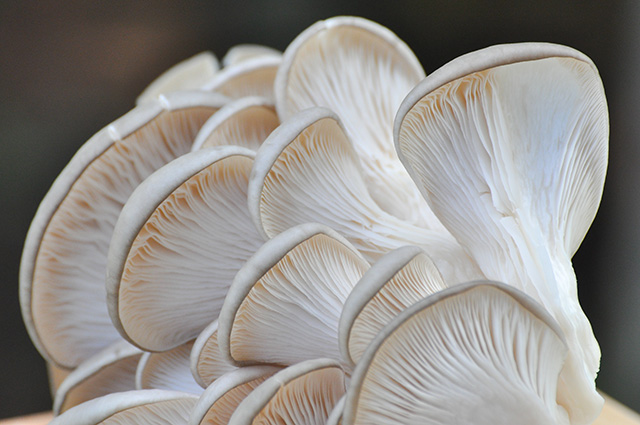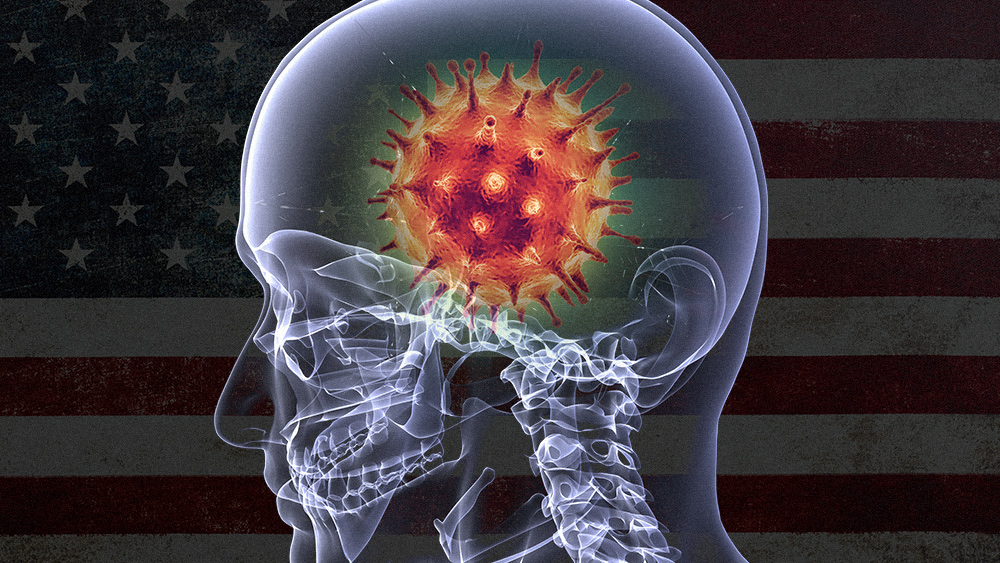Succeeding where Big Pharma failed: Plant-based nutrients in mushrooms and tea found to delay cognitive decline linked to Alzheimer’s
07/07/2020 / By Divina Ramirez

A team of researchers from the National University of Singapore (NUS) identified an antioxidant in mushrooms that can reduce the risk of mild cognitive impairment (MCI).
Published in the Journal of Alzheimer’s Disease, the study reported that adults aged 60 and above who consumed more than two portions of mushroom each week for six years had a lower risk of developing MCI, a known precursor of dementia.
The researchers believe that this effect stems from the strong antioxidant properties of ergothioneine, an active compound found in all varieties of mushrooms, including golden mushrooms, oyster mushrooms, shiitake and white button, all of which were included in the study.
What is mild cognitive impairment?
MCI refers to the stage between normal cognitive decline and dementia. Older adults with MCI are prone to bouts of forgetfulness. MCI also affects important cognitive functions such as language, attention and visuospatial ability, but not to the same extent as conditions like Alzheimer’s disease and Parkinson’s disease do.
Unlike those with dementia, older adults with MCI may not yet exhibit apparent signs of their condition. Many are actually able to perform basic activities with little to no support.
MCI remains an active area of research. No drugs, therapies or treatments have been approved by the Food and Drug Administration (FDA) for MCI at present. (Related: How does acupuncture reduce mild cognitive impairment in Alzheimer’s patients?)
There is also no accepted mainstream cure for most progressive forms of dementia, such as Alzheimer’s disease.
Mushrooms and MCI
Researchers at NUS found that the weekly consumption of more than two portions of cooked mushrooms for six years led to a reduced prevalence of MCI in adults aged 60 years and above.
To understand the relationship between mushroom intake and MCI risk, the researchers used data from 663 participants who were part of the Diet and Healthy Aging (DaHA) study, a prospective cohort study in Singapore. These participants neither had dementia nor showed any signs of MCI.
The researchers then looked at the participants’ mushroom intake over a period of six years. Some of the most common mushroom varieties in Singapore were featured in the experiment. The researchers defined a portion of mushrooms as three-quarters of a cup or 150 grams (g), while two portions were equivalent to half a plate.
At the end of the experiment, they found a reduced prevalence of MCI among participants who ate more than two portions of mushroom each week. They attributed this effect to the antioxidant properties of ergothioneine, a compound found in several mushroom varieties.
The researchers also posited that other compounds in mushrooms may also have protective effects against neurodegenerative conditions like Alzheimer’s disease.
The researchers concluded that mushrooms are rich in neuroprotective agents like ergothioneine that can help prevent neurodegenerative diseases.
Tea consumption linked to better cognitive performance as well
In an earlier study, one of the lead authors, Lei Feng, sought to understand the effects of tea consumption on cognitive function.
Together with his team, Feng looked at the tea consumption of 716 Chinese adults aged 55 years or older, who reported drinking different varieties, including black tea, oolong tea and green tea.
The team then assessed the participants’ cognitive performance using neuropsychological tests that evaluated attention, memory, executive function and information processing speed.
They found that tea consumption improved all of these cognitive aspects. Interestingly, the brain-boosting effects they observed were not restricted to a specific kind of tea.
Feng and his colleagues believe that the cognitive benefits of tea consumption may be due to certain antioxidants present in tea leaves. These include L-theanine and epigallocatechin-3-gallate (EGCG). EGCG, in particular, is known for its protective effects against cognitive deterioration and MCI.
Based on their findings, Feng and his team concluded that tea consumption is linked to better cognitive performance in older adults.
Read more articles about ergothioneine, EGCG and other beneficial plant compounds at Phytonutrients.news.
Sources include:
Tagged Under: alternative medicine, anti-aging, antioxidants, brain health, cognitive function, cognitive health, dementia, disease treatments, ergothioneine, food cures, food is medicine, functional food, mild cognitive impairment, Mushrooms, natural cures, natural medicine, phytonutrients, prevention, research
RECENT NEWS & ARTICLES
BrainFunction.News is a fact-based public education website published by Brain Function News Features, LLC.
All content copyright © 2018 by Brain Function News Features, LLC.
Contact Us with Tips or Corrections
All trademarks, registered trademarks and servicemarks mentioned on this site are the property of their respective owners.


















